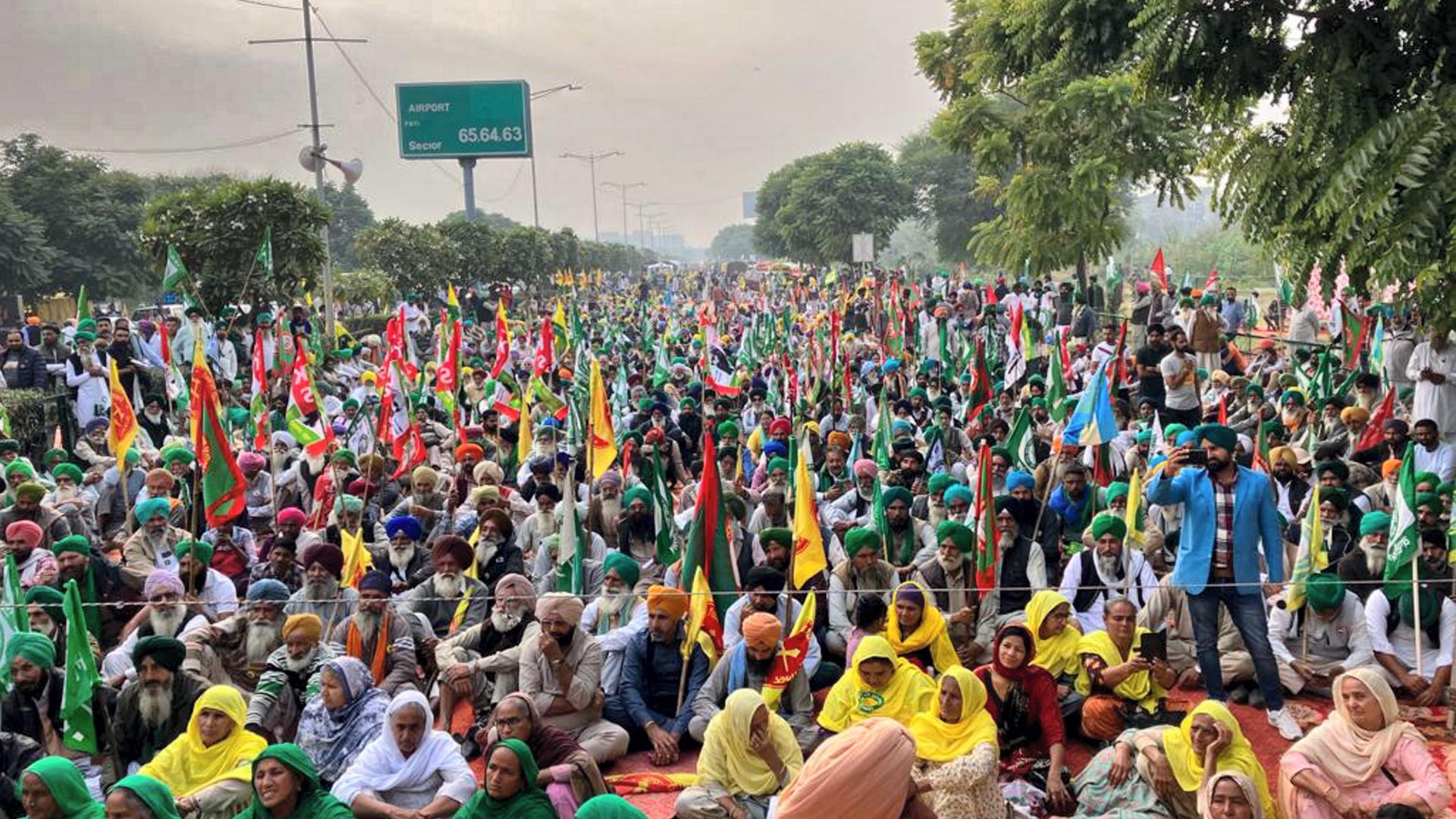In a significant escalation of their ongoing protest, farmers from Punjab broke through police barricades and began their march towards Delhi, demanding a discussion on the contentious issue of Minimum Support Price (MSP). The march follows months of mounting discontent among farmers regarding the government’s stance on agricultural policies, especially the lack of clarity on guaranteed MSP.
Hours before the march intensified, the Supreme Court intervened, urging Punjab farmer leader Jagjit Singh Dallewal to convince the demonstrators to avoid blocking highways and causing public inconvenience. The court’s remarks underscored the balance between the farmers’ right to protest and the need to ensure public order.
“We recognize the farmers’ grievances, but it is equally important to ensure that highways remain unobstructed for public use,” the court noted, emphasizing the need for peaceful and lawful demonstrations.
The Farmers’ Demands
At the heart of the protest lies the demand for a legal framework guaranteeing MSP for crops—a key issue for farmers who believe it will protect them from exploitation by private players and market fluctuations.
The farmers argue that the existing system fails to provide adequate support, leaving many at the mercy of unpredictable market forces. “MSP is not just a number; it is the backbone of farmers’ livelihoods,” one protestor said, highlighting the widespread apprehension among cultivators.
As the march began, police were deployed in significant numbers along major highways to prevent the demonstrators from reaching Delhi. However, the farmers managed to breach multiple barriers, signaling their determination to press forward.
Visuals from the site showed large gatherings of farmers with tractors, flags, and banners, chanting slogans and calling for immediate government attention to their demands. The situation remains tense as authorities attempt to manage the growing crowds.
Political and Social Implications
The march has reignited debates around the handling of farmers’ issues in India. Several political leaders have expressed solidarity with the farmers, urging the government to engage in constructive dialogue to address their concerns.
“The government must listen to the voices of those who feed the nation. Ignoring them will only deepen the crisis,” a prominent opposition leader remarked.
Conversely, some voices have criticized the disruption caused by such protests, calling for alternative methods of advocacy that do not inconvenience the general public.
The march towards Delhi is likely to add pressure on the government to revisit its agricultural policies and take definitive action on MSP guarantees. With emotions running high and the Supreme Court closely monitoring the situation, the coming days will be crucial in determining the outcome of this renewed farmers’ movement.
For now, the farmers’ march stands as a stark reminder of the enduring challenges in India’s agricultural sector and the pressing need for policy reforms that ensure equitable support for the farming community.

















